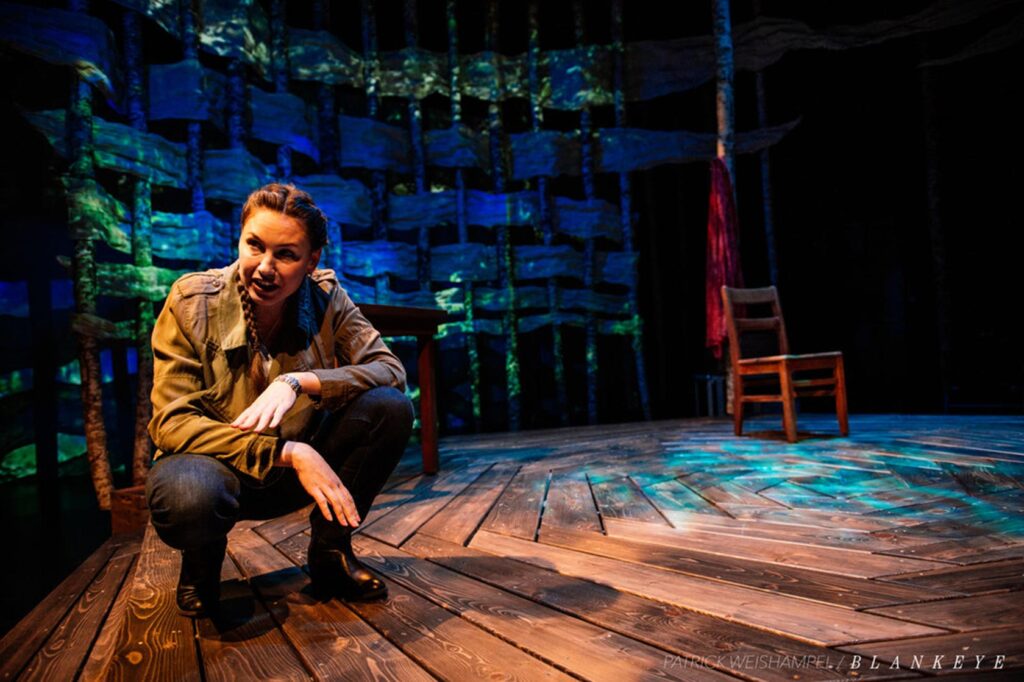DeLanna Studi retraces 900-mile Trail of Tears in ‘And So We Walked’

DeLanna Studi, a Cherokee activist and actress, brings her one-woman play “And So We Walked” to Boston this month. The ArtsEmerson production has six shows and runs April 26-30 at Emerson Paramount Center’s Robert J. Orchard Stage. The play recounts the journey Studi and her father, Thomas Studie, took when they followed her great-great grandparents’ 900-mile route along the Trail of Tears. Studi’s ancestors were forcibly displaced from North Carolina to Oklahoma by the United States government in the 1830s.
Studi spoke to the Banner over Zoom on April 6 while she was in Rochester, New York, for the second preview of her play at the Geva Theatre. She was in bright spirits, with a smile and dangling silver earrings that shone on the screen whenever she spoke passionately, which was a lot. Her passion for her people and her work fueled her to write and perform her self-described dream project.
Her dream project, “And So We Walked,” started about a decade ago. While working at the Oregon Shakespeare Festival, Studi applied for a grant to write a one-person show about walking the Trail of Tears. She wanted to retrace her ancestors’ footsteps to find out where her family was originally from, and to bring her father along for the journey. She didn’t get the grant, but a series of serendipitous moments with her director Corey Madden resulted in the show’s creation.
Madden pushed Studi to center the show around the father-daughter relationship, which she did. Studi emphasized how important her father’s presence was.
“He’s an elder. He’s an Old Speaker, which means his first language is Cherokee and he’s a full-blood,” she said. “He would have status, credibility and knowledge that I don’t have, not being a full-blood or a fluent speaker.” Studie’s status as an elder allowed the pair to communicate with culture bearers and learn more of the Nation’s sacred knowledge.
Studi also said her father told her, “You can’t research a place until after we visit it. I want you to go there and just see what comes up in your body.” Studie wanted his daughter to rely on what Cherokees call blood or ancestral memory. It is the belief that memories of those who came before can be passed down through genetics or the bloodline.
Studi took her father’s advice not to hide behind her research but instead pay attention to the feelings she felt along the way. She said there were places where she had profound sadness and others where she felt a great sense of joy. At one point, she said, “I could honestly feel all my ancestors with me. And it was such a beautiful feeling. It was like I will never feel lonely again after this.”
As for what’s next, Studi is working on a memoir based on her journey. In the meantime, she hopes audiences will understand this work is about “finding home in the darkest of places, and it’s also about, when you’re in those dark places, to learn how to ask for help and learn how to overcome trauma, and about the power of family and community.”






